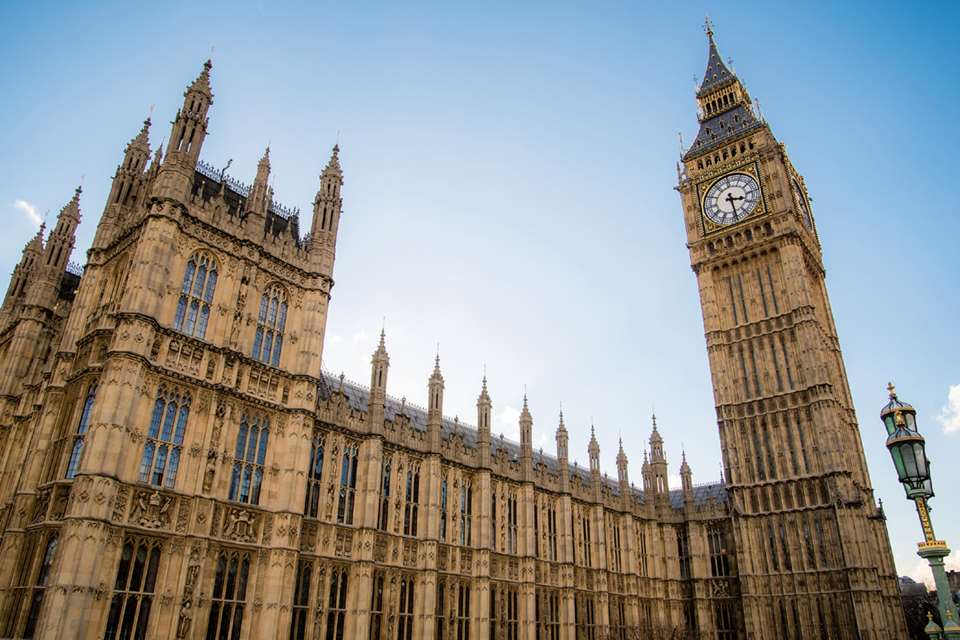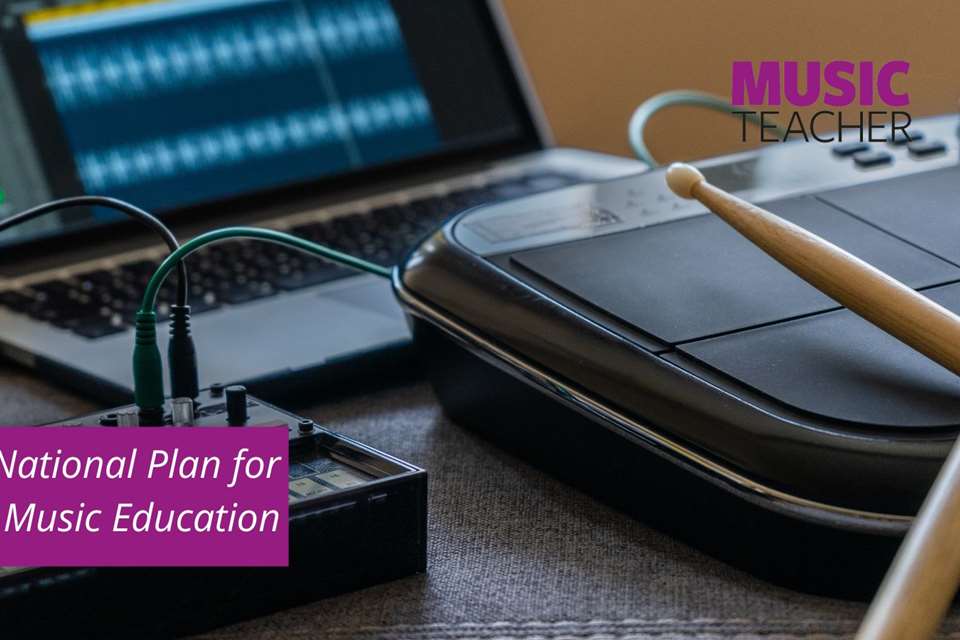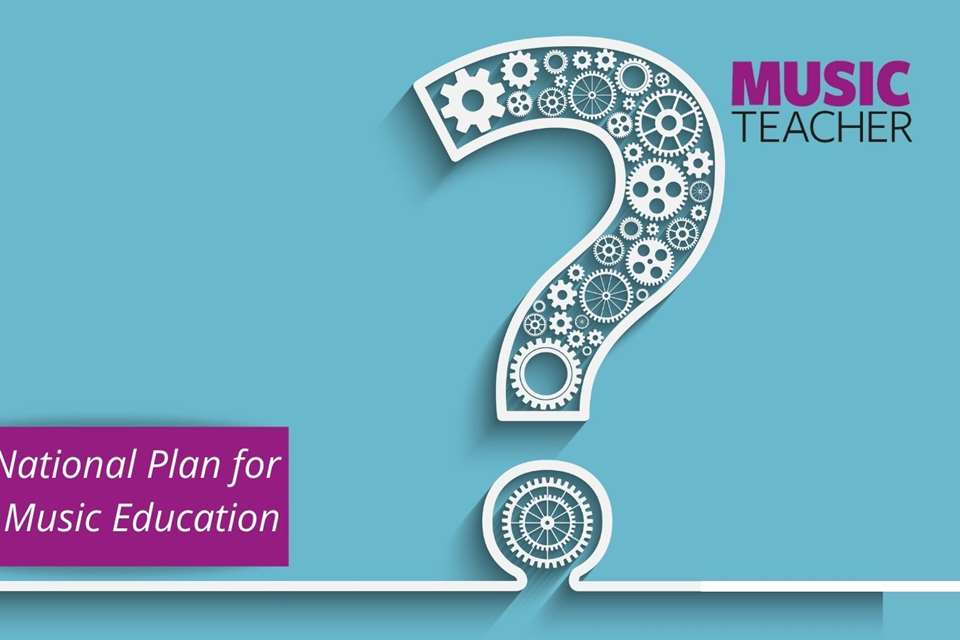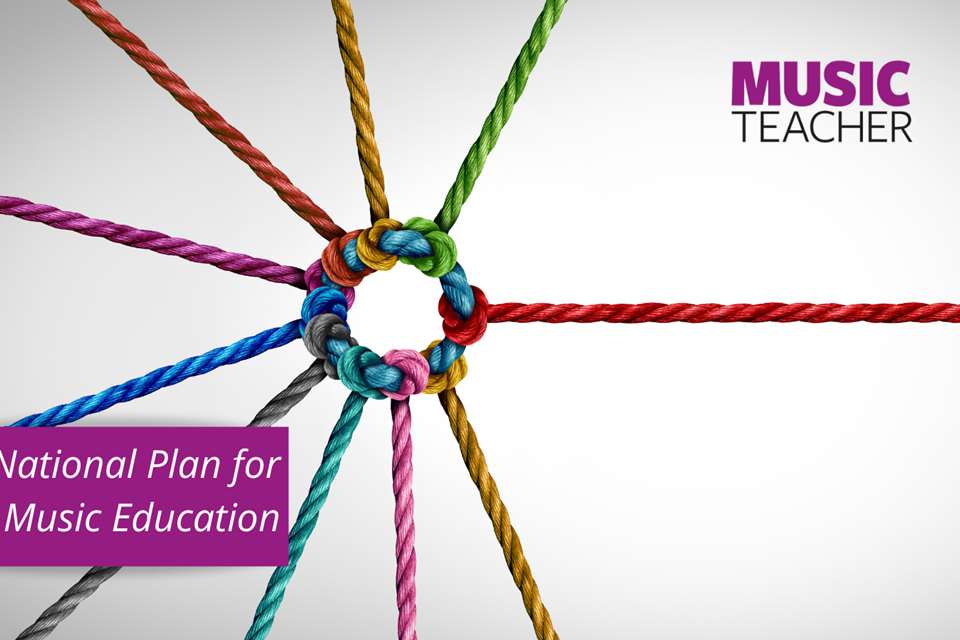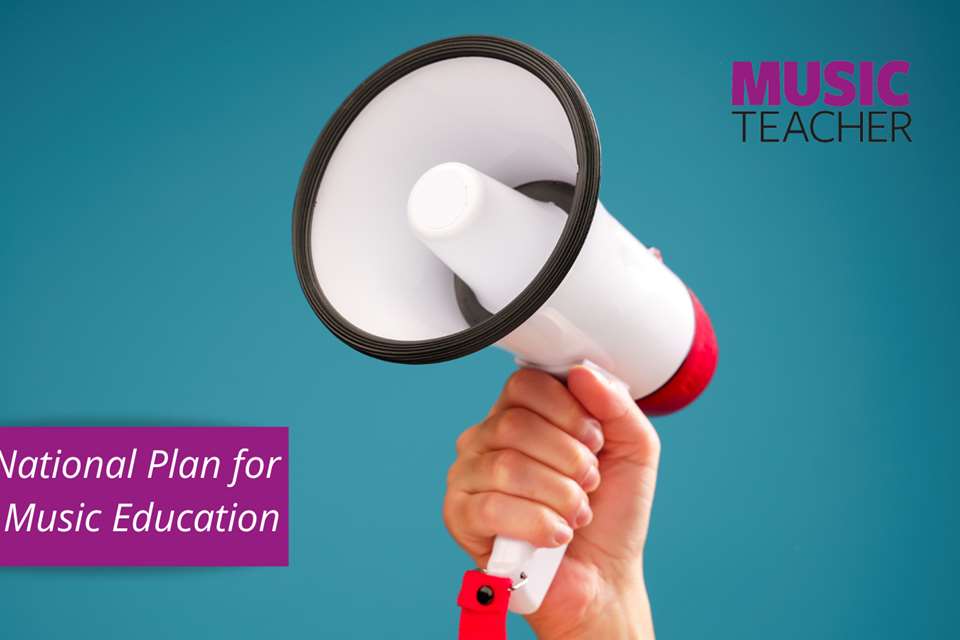Jonathan Vaughan: forging meaningful local alliances
Jonathan Vaughan
Monday, May 1, 2023
Principal of the Guildhall School of Music & Drama since 2022, Jonathan Vaughan reflects on the performing arts, the role of educators and how we can build a better, more collaborative future.
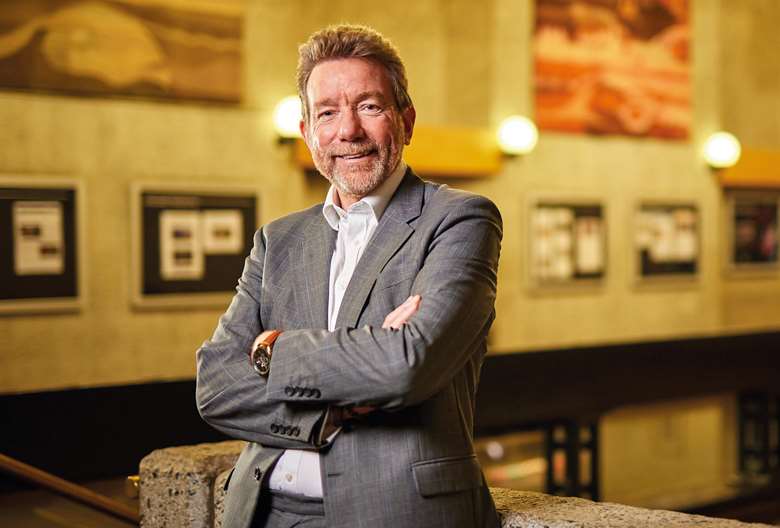
© Guildhall School / Paul Cochrane
For most of my 40-year career I've harboured an optimism that one day we will have a government in the UK which has the vision, foresight and determination to organise and fund music education at a level that would enable every child in the country to have access to instrumental lessons. Having spent hours talking to MPs and attending cross-party debates, I am now certain that that is not going to happen in my lifetime – no matter who is in power. The cavalry is not coming over the hill to save music education.
Our industry is under more pressure than ever before, as a result of funding challenges and political scrutiny. There are of course pockets of extraordinary work, but on a national scale our infrastructures are now so patchy, fractured and dysfunctional that they have virtually no structural integrity or coherence. As a nation we are failing our young people in the performing arts.
However, in the words of Ian Dury & The Blockheads, I believe that there are reasons to be cheerful. I know many music educators around the country who remain stubbornly optimistic, despite anxieties about funding, growing social injustice, market-driven globalisation and a STEM-centred education system. They see that what has emerged, post-Covid, is a new sense of alliance within communities. There is a growing sense of social agency through arts education and a collective confidence to act in the best interests of our communities. They believe that it is this collective sense of responsibility among artists and educators that will power the changes we seek, rather than any amount of ‘government knows best’ interventionist education policy.
Creating lasting partnerships
In my view, it is collective co-operation between arts organisations and music education providers that could make a real difference. I'm not talking about those one-off days of performances which so excite children and can be incredibly inspirational, but ultimately leave them with little follow-up; rather, I'm describing integrated and sustainable weekly provision. I believe conservatoires and performing arts institutions should be partnering music hubs and education providers in a much more coherent and weekly, progressive way.
There are examples of this across the country, but at the Guildhall School we have been working with partners to develop Guildhall Young Artists: a network of five Saturday centres plus one online centre, providing inspiring performing and production arts-training for over 1,500 children and young people up to the age of 18. The centres partner with secondary schools and further education colleges to develop the next generation of talent from every background. Nearly 20 per cent of students receive financial support and almost 40 per cent are from the global majority. Students come from over 700 schools nationally, and from 23 counties, to attend each week. We're pretty certain that the network makes us one of the biggest providers in the country of specialist music education for children and young people under the age of 18.
Changing marketplace
One of the fundamental obstacles to a more integrated and collaborative music business in the UK is that funding is often predicated on competitive tender between organisations. This discourages real collaborations, encourages siloed behaviour and leads some to overstate the impact of their work in an effort to secure the next tranche of funding. My instinct is that the future of both the music industry and music education is going to be much more about the micro than the macro; less about huge national infrastructure and far more about grassroots collaboration between individuals and organisations; less corporate supermarket, more local corner shop.
The music industry itself is also under huge pressure and changing rapidly in response to the political and technological shifts in our society. Digital dissemination as the most dominant player in the marketplace is a gamechanger for the individual artist. It means that any individual can broadcast their own work and performers no longer need a recording contract to be heard (although generating revenue this way remains an issue). But in the digital world, visual impression, character content and personal narrative play a far greater role in a performer's success than ever before.
There is a real sense now that it's no longer sufficient simply to be a great performer. The big macro music industry of the 1990s, with its career jobs, big record companies and large broadcast corporations, has become fragmented into micro industries peopled by self-starters, entrepreneurs and influencers.
In addition, following the impact of global social justice movements such as Black Lives Matter and #MeToo, the scrutiny of programming and commissioning has (rightly) never been greater. As well as being great musicians, really successful artists increasingly need to be politically engaged advocates with a well-informed worldview; broadcasters, commentators and educators who take social, ethical and moral responsibility; programmers with cross-cultural understanding and awareness; activists and commissioners of new works who celebrate social diversity and difference; and artists who constantly disrupt and innovate the conventional models for the dissemination of their work.
Role of conservatoires
It is amidst these huge tectonic shifts that I have taken the helm of one of the world's great conservatoires. I grew up with free music lessons in a state school and went on to become a member of the London Symphony Orchestra, before running the National Youth Orchestra of Great Britain and then joining the Guildhall School (2007) as director of music.
The first question I asked myself when I became principal was how the Guildhall might help to address the huge challenges we face. I feel we need to train our next generation of artist educators differently. We need to consider what our moral and ethical responsibilities are in training young people as performing artists in order to prepare them for a fast-changing and unknown future.
In 2019, in search of answers to these questions, I embarked on a doctorate to study 24 music conservatoires around the world to better understand how current provision prepares our next generation of performers as both artists and ethically-informed, critically reflective, citizens.
Artistic citizenship is about the ethical and social responsibility of the artist in society. We know that the arts can bring transformational change to people's lives; not only in clinical and social settings as outreach practitioners but also via artists whose work asks questions and reflects issues of society and what it means to be human. Put simply, I believe performing arts education is about helping people to live well, in a world worth living in.
But given the turbulent changes in both the industry and society, how can artistic practice, and the way the Guildhall trains its students, become more relevant and sustainable within the communities it serves?
In a fast-changing world we need to train our students not simply as brilliant musicians but also as cultural leaders, entrepreneurs and trail blazers. They will need to be ambassadors, innovators and advocates for the arts, fully conversant with technology and social media broadcasting. They will need to understand how to curate and commission, develop narratives about themselves and their work.
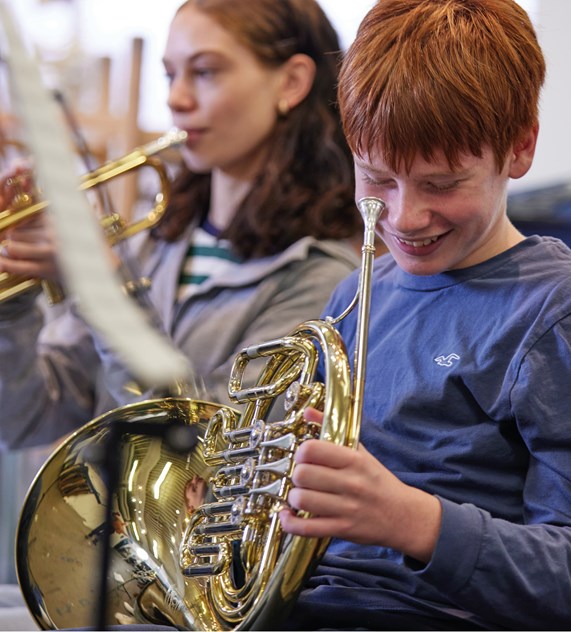 © Guildhall School / Paul Cochrane
© Guildhall School / Paul Cochrane
Students at the Centre for Young Musicians, London
New vision
In response to this, and the insights gained from my research, I am working with an outstanding team of senior leaders at the Guildhall to formulate a new vision for the future:
-
We want the Guildhall to be for everyone with aptitude and talent, from any walk of life.
-
We believe in lifelong curiosity and the ongoing pursuit of skills and knowledge (we currently have participants on our courses aged between 4 and 82!).
-
We are working to identify and remove the obstacles that prevent young people from progressing into higher education, and we want to find ways to present degree programmes in more affordable ways.
-
We want to broaden the repertoire by commissioning new works drawn from artists of diverse backgrounds which tackle themes such as climate change and social justice.
-
We want to build a culture that is inclusive and equitable for everyone in order to bring in more creative talent and ideas to the institution, generate more cutting-edge work and create the artists of the future.
I see working with partners, who share our values, as central to our vision moving forwards. We already have exciting partnerships that offer our students access to leading institutions and artists (with the Barbican, London Symphony Orchestra, BBC Symphony Orchestra and the Royal Opera House, for example) and we want to build on this. We are also thinking about our place within the global arts and education sector, what part we have to play and who we can work with. Focusing on our international role is a priority for me.
In a bid to create better networks of collaboration, we are currently in discussion with Arts Council England and other partners about how our combined resources might support the refreshed National Plan for Music Education Plan (2022), and this includes how we might unlock more funding on a national scale.
I'd love to hear from anyone around the country that is interested in these initiatives and how the sector can better collaborate. And of course, we'd love to hear from anyone who would like to engage with Guildhall Young Artists.
Every morning I ask myself how I can better use my position of privilege to drive the changes needed to help young people. Forging meaningful and sustainable alliances at the grassroots has to be one answer. We need to take agency and collaborate much more effectively by setting aside our local differences and the competitive promotion of our own organisations, and come together in a spirit of collective cooperation. If, at the very heart of this collaboration, we hold sacred the notion of every individual child's needs, then together we can create a sustainable network that helps young people to live well, in a world worth living in.


